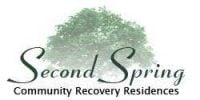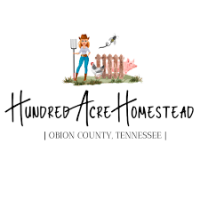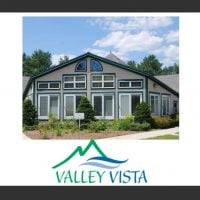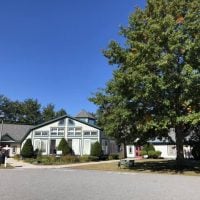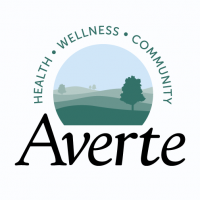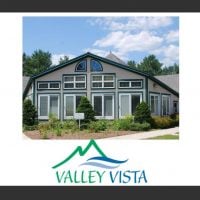About This Vermont Facility
Second Spring is an Addiction Treatment Facility located in Williamstown, Vermont. It specializes in helping individuals suffering from dual diagnosis, eating disorders, mental health, drug addiction and substance abuse, as well as alcoholism. The facility offers both inpatient and dual-diagnosis levels of care, as well as holistic therapies such as music and art therapies, yoga, and acupuncture. They also offer a variety of evidence-based therapies such as cognitive behavioral therapy (CBT), dialectical behavior therapy (DBT), and trauma-informed care. The treatment center also has a licensed staff with many years of experience in the field. In addition, Second Spring is accredited by the Commission on Accreditation of Rehabilitation Facilities (CARF), and provides mental health services under the auspices of a Mental Health Services Act (MHSA) license.
At Second Spring, individuals have the option to partake in a wide variety of counseling and educational services. Through one-on-one therapy, individuals can work on their underlying issues of trauma, anxiety, or depression, and learn healthy coping mechanisms and communication skills. Group therapy sessions provide the opportunity to connect with others and build a strong sense of community while addressing issues such as relapse prevention, substance use disorder, and coping skills. In addition, educational workshops and lectures serve to increase knowledge about topics like addiction, mental health, and recovery. All of these services are available to help individuals build the skills and support network they need to address the root causes of their addiction and begin a successful journey into recovery.
Genders
Ages
Modality
Additional
Conditions and Issues Treated
Dual Diagnosis refers to someone who is both dealing with addiction and another mental health issue.
There are different kinds of Dual Diagnosis: A person who simultaneously experiences both a mental illness and an addiction disorder. Or, a person who experiences one or more coexisting (simultaneous) mental health conditions in addition to a primary substance use disorder.
Some conditions that commonly co-occur with addiction include:
- Personality Disorders (Borderline, Narcissistic)
- Mood Disorders (Bipolar Disorder, Depression, Anxiety Disorder)
- PTSD (Post Traumatic Stress Disorder), OCD (Obsessive Compulsive Disorder), ADHD (Attention Deficit Hyperactivity Disorder)
- Schizophrenia, Psychosis, Hallucinations, Delusions
Levels of Care Offered at Second Spring
This center offers a variety of custom treatment tailored to individual recovery. Currently available are Dual-Diagnosis, Inpatient, with additional therapies available as listed below.
Individuals who are suffering from severe addiction or have a high risk for dangerous health concerns are often recommended to receive inpatient treatment.
Choosing to enter an inpatient treatment program is beneficial for people who are suffering from severe addiction, or who have a high risk for dangerous health concerns.
Inpatient treatment is beneficial for:
- People who have a history of severe withdrawal.
- People who have attempted to overcome addiction on their own without success.
- People who have a history of relapse, or have recently relapsed.
- People at risk for drug overdose or withdrawal-related complications.
- People with medical conditions that are worsened by drug or alcohol use.
Therapies & Programs
Therapy sessions focused on the individual addict can provide much-needed guidance as they work toward overcoming their addiction. These types of sessions typically involve guidance from a therapist, who will help addicts identify and process their feelings and cravings.
During these sessions, addicts may develop plans for coping with the triggers that typically lead to relapse and learn how to avoid those triggers during their recovery process.
If you are looking for drug recovery, couples therapy can be a great option. This type of therapy can help rebuild trust and joy in relationships that may have been damaged by addiction. It can also help reduce the dysfunctional behavior in a relationship that may trigger addiction. A patient’s partner will be involved in the process. They can also benefit from therapy, especially if they are trying to live with an addict.
The main goal of family therapy for drug addiction is to create an environment where communication can occur without judgment, hostility, or blame that often occurs within a family.
Family therapy is a type of group problem-solving that aims to improve communication and relationships between the patient, their family, and sometimes friends. The therapist is with the family as they learn to communicate with each other differently, especially with the addict when s/he is using.
The family can learn to reduce their enabling behavior or rally together and support each other during tough times. The patient also learns how to deal with their addiction and maintain sobriety while interacting with the family.
Different types of addiction treatment services are available. Within this article, group therapy is of interest due to its high success rate compared to individual therapy. Group therapy settings are beneficial because they allow recovering addicts to build a strong support network.
Benefits of group therapy are:
- Reduces feelings of isolation
- Immediate access to social support in the form of fellow addicts in recovery
- Lowers risk of relapse
- Increases rate of sobriety
- Builds coping skills that can be applied to everyday life
Trauma Therapy is a form of therapy that involves working with a patient to help them process and understand the past trauma(s) in their life. The idea behind it is that while some people can experience traumatic events and not have lasting psychiatric symptoms, many others will. In these cases, memories of the event get hidden from consciousness but continue to influence how the person processes and copes with things in their life. They may avoid situations that resemble what happened or become suddenly angry or irritated to a situation that reminds them of a past event.
With the help of a therapist, people can go back over memories and experiences. This helps them understand why they are having problems coping with certain situations and how they can change how they think and react to things. This therapy is typically done using techniques such as visualization, discussion, and writing down thoughts and feelings.
Trauma therapists will work with clients to help them understand their past and present relationships. Many times, patients may believe that something is inherently wrong with them or that they are unworthy of love. A therapist aims to correct these negative feelings and behaviors by helping the person realize that their actions do not reflect who they truly are.
One of the main goals of trauma therapy is to help clients express their emotions and talk about what they are feeling. This benefits both to increase awareness of how certain events have impacted them in the past and enables patients to realize that they can make changes in their lives.
Dialectical Behavior Therapy is a cognitive-behavioral therapy that helps addicts balance their thoughts and emotions to change their behavior. It was designed for those vulnerable to self-harm and suicidal thoughts and aims to help patients understand the connection between their feelings, emotions, and behaviors. It is effective for those whose addictions and behaviors stem from severe mental health issues.
Cognitive Behavioral Therapy (CBT) is used by drug treatment centers to help addicts comprehend the causes of their substance abuse and the consequences that follow. Through CBT, clients learn to recognize and avoid high-risk situations and cope with challenging situations when they arise.
CBT treatment often includes a combination of individual therapy, group therapy, lectures, and other activities. The treatment’s goal is to help addicts gain self-control and maintain abstinence from drugs and alcohol over the long term so that an addict can get sober and lead a more productive life.
CBT is particularly effective in helping people overcome their drug problems, especially people whose drug abuse is motivated by self-defeating beliefs and emotions.
Good nutrition can be difficult for people recovering from addiction because they may not feel like eating while they are experiencing the physical and emotional side effects of detoxing.
Nutrition therapy can help addicts in the following ways:
- Helps individuals to understand which foods promote good health and support recovery that will assist them during detox
- Provides guidance and education in Williamstown, Vermont about how to maintain a nutritious diet so they can stay healthy during recovery
- Improves their overall health and well-being, which can reduce the severity of substance withdrawal symptoms.
Nicotine replacement therapies are effective because they provide you with the nicotine you are addicted to without inhaling carcinogens from cigarettes. Some types of NRT include nicotine gum, nicotine patches (transdermal systems), nasal spray, and lozenges. The benefits of using NRT can include reducing the risk of heart disease and cancer.
Patient Experience
Experiential Therapy at Second Spring
Experiential therapy is a form of psychotherapy where patients are asked to engage in activities such as role-play, poetry writing, music composition, exercising, or journaling to help process intense feelings. The aim of the therapy is to help patients access deeper, often hidden emotions by helping them explore their own body and mind.
Payment Options Accepted
For specific insurance or payment methods please contact us.
Additional Details
Specifics, location, and helpful extra information.
Williamstown, Vermont 5679 Phone Number(802) 433-6183 Meta DetailsUpdated November 25, 2023
Staff Verified
Patient Reviews
There are no reviews yet. Be the first one to write one.
Williamstown, Vermont Addiction Information
Vermont has the highest rate of illicit drug abuse in the nation. A third of all Vermonters who are addicted to drugs admit to first having abused prescription drugs. The largest drug threat in Vermont is opioids. Fentanyl, dubbed the most dangerous drug in America, is responsible for more than half of all opioid-related deaths in Vermont. A third of all residents aged 12 and older who are addicted to drugs admit to first having abused prescription drugs. In many overdose cases, cocaine is also a contributing factor.
Treatment in Nearby Cities
- Williamstown, VT (1.6 mi.)
- Bradford, VT (23.7 mi.)
- Manchester Center, VT (70.6 mi.)
- Worcester, VT (17.6 mi.)
- Bradford, VT (23.7 mi.)
Centers near Second Spring
The facility name, logo and brand are the property and registered trademarks of Second Spring, and are being used for identification and informational purposes only. Use of these names, logos and brands shall not imply endorsement. RehabNow.org is not affiliated with or sponsored by Second Spring.
